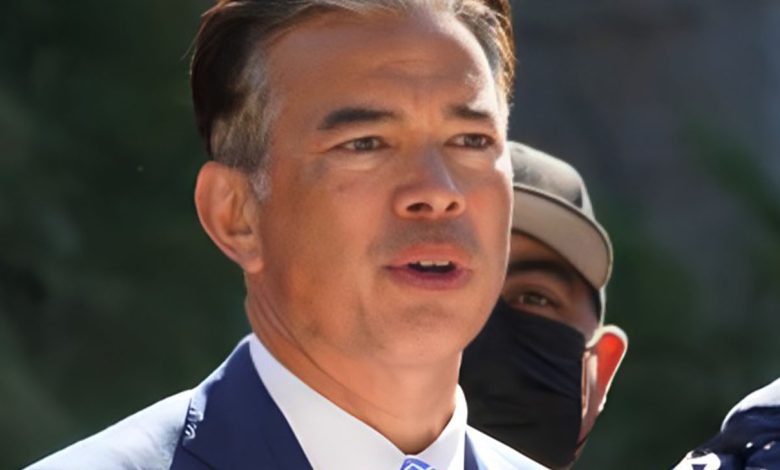Attorney General’s Office Denies Helping Holy Names University Sell Campus, Contrary to HNU’s Claims

By Ken Epstein
Holy Names University in Oakland continues to be not transparent or truthful with the public and Oakland officials in its claims that HNU is acting with the approval and guidance of the office of California Attorney General Rob Bonta to sell the 60-acre campus in the Oakland hills for high-end residential development when the campus permanently closes, currently scheduled for the end of the current semester in May.

Jeanine Hawk, HNU’s vice president for finance.
In a recent letter to City of Oakland officials, Jeanine Hawk, HNU’s vice president for finance and administration, claimed that the university has been working closely with Bonta’s office and that the university’s decision to sell the property to the highest bidder is based on and guided by discussions with the Attorney General’s Office.
“HNU has been in constant communication with the California Attorney General’s office regarding the manner of ensuring that any transfer of its property satisfies the requirements of California law,” Hawk said.
Further, she alleged that “discussions with the Attorney General’s office have resulted in an effort to market the property both through a real estate broker (Mike Taquino at CBRE) and through our continued communications with potential successor universities.”
Hawk also dismissed the City of Oakland’s offer to help maintain HNU as a center of higher education. “At this point it is unclear to HNU how the City of Oakland can assist with the process of achieving the objectives of obtaining the highest and best use of the HNU property for public good, particularly when HNU’s efforts to date have been in cooperation with the AG’s office,” she said.

Chief Deputy Attorney General Venus D. Johnson
However, in a strongly worded denial, Venus D. Johnson, Chief Deputy Attorney General in AG Bonta’s office, wrote in a March 17 letter to Oakland officials, “While HNU has kept the Attorney General’s Office apprised as to its efforts to secure a successor educational institution, our office has not provided HNU with direction, approval or guidance with regard to these efforts.”
“Any assertion to the contrary is inaccurate,” Johnson wrote.
“Specifically, although HNU has reported to you that this office has told HNU that it must sell to the highest bidder and that we have provided HNU with direction related to its marketing efforts, the Attorney General’s Office has done neither of these things,” according to Johnson’s letter.
Johnson emphasized that under the law the decision whether to sell the property is up to the HNU Board of Trustees. “A nonprofit corporation only needs approval from its board of directors to sell or transfer all or substantially all of its assets under terms the board deems is in the best interests of the corporation,” she said.
Johnson added that there are no legal reasons why HNU cannot work with a Historically Black College or University (HBCU) or other educational institution to maintain the campus as a center for higher education.
She wrote: “Let me be clear: HNU absolutely may consider entering into an agreement with a successor educational institution and continue to operate with an educational purpose and mission. While my office cannot require HNU to do this, neither can we prevent them from doing so: The decision is HNU’s and HNU’s alone.”
Several HNU students and an Oakland City Councilmember spoke this week about the potential for maintaining HNU as an institution of higher education on the “Education Today” program aired on radio station KPFA FM94.1.”
“There are a lot of unanswered questions: how did we get to this place?” Asked Aniya Bankston, chair of the HNU Black Student Union (BSU) and a pre-nursing student.
“There’s a very confusing time on campus, (and) anxiety is super high” among the students, she said.
Kiara Evans, a member of HNU student government and the also a BSU member, said she and other student leaders met with the HNU Board of Trustees, which she was disappointed to see was all white.
“They were very nonchalant,” said Evans. “Whatever we said, they just brushed us off. They didn’t really want to hear from us, and it’s pretty sad and disappointing that these people are in charge of our education. They’ve never even gotten to know us.”

Oakland District 4 Councilwoman Janani Ramachandran
City Councilmember Janani Ramashandran, who represents the area that includes the HNU campus, said she is working with other city leaders “to see this site used for higher education … not to follow the path of building luxury housing.”
“I’m cautiously optimistic,” she said. “It comes down to the will of the Holy Names board (to negotiate)” and some of the proposals for educational uses for the property.
In response to questions from the Oakland Post, HNU Vice President Hawk wrote:
“The AG wanted to emphasize that it does not direct organizations in these matters. The letter confirmed that HNU has been apprising the AG’s office of the current situation to share HNU’s proposed path forward and to make sure that HNU’s interpretation of applicable laws regarding the sale or transfer of property of a non-profit corporation will properly inform decision making by our Board of Trustees.”


